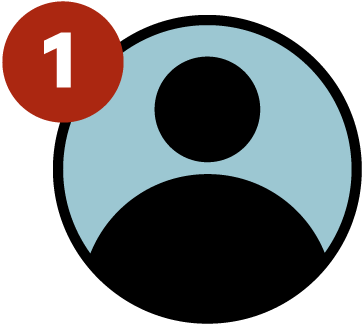
Here’s the story we’re usually told about libido: Men want to do it all the time. They get turned on by the sight of a flash of skin. They are basically animals. Women aren’t that into sex. They need lots of romance and warming up to convince them to engage.
That dichotomy — men are ruled by a raging libido, while women aren’t actually interested in sex — is not only false but can be harmful to a long term relationship.
The Truth About Libido
Regardless of gender, libido is different for each and every person. It’s also different throughout a person’s life cycle, so a 17-year-old you is going to have a very different libido from a 35-year-old you or a 63-year-old you.
When you think of your sex drive as a fluid part of yourself, rather than a static thing that follows gender stereotypes, it’s a lot easier to deal when your libido starts behaving in a way you don’t like. Many (if not most) people experience a drop in libido at some point during their life. And if that drop doesn’t correspond with a drop in their partner’s libido, things can get… complicated.
Low male libido isn’t a problem in and of itself. It’s only an issue if it negatively affects your relationship with your partner. If your libido is low and your partner is fine with that — or if their libido is low and you’re fine with it — then there isn’t a problem. Be careful not to pathologize a low libido just because society says it’s “supposed” to be one way or another.
When your libido mismatches with your partner’s, that’s prime time for discontent, resentment, cheating, and even the end of the relationship. Luckily, there are some things you can do if your or your partner’s libido drops and it’s a problem for you.
Low Testosterone
The very first thing you should do if you’re experiencing an unusually or problematically low libido is get your testosterone levels checked. Testosterone is a hormone that is primarily associated with sex drive, but it also affects energy levels, bone and muscle mass, and red blood cell production. Higher testosterone levels are usually associated with a higher libido, and a drop in libido can be a sign of a drop in testosterone.
Because men have more testosterone than women, their libidos tend to be more obvious. (We’re not saying “stronger,” because men and women actually have similar levels of interest in sex. However, the way that libido is expressed is usually very different, with men giving more obvious, outward signs and women’s expression tending to be more internal.) Young men and teenagers in particular have more testosterone and therefore a more obvious — sometimes even overwhelming — libido.
So, if you’re feeling basically none to no interest in sex, get your testosterone levels checked. It’s a simple blood test that your primary care provider can do for you and it’s a great place to start.
High Stress
You probably know how stress affects your brain and even parts of your body, but did you know that it directly affects hormone production, too? And those hormones affect your libido.
This gets a little technical, but we promise it will only last a paragraph. When you’re stressed, your body releases endorphins to block pain. Those endorphins also stop your body from releasing luteinizing hormone (LHRH), which causes a drop in luteinizing hormone (LH), which is essential in testosterone production. Another hormone that’s released during stress, cortisol, also makes the testes less responsive to LH. And, finally, follicle stimulating hormone — which is important for sperm production — also drops.
All of this happens because of our ancient fight or flight response. Imagine you’re a caveman having sex with a cavewoman and a saber-tooth tiger comes upon the two of you. If your body’s hormones are saying “KEEP HAVING SEX THIS IS GREAT WHO CARES ABOUT THE TIGER,” you’re going to both die. But if your body’s hormones say “STOP THE SEX AND RUNNNNNNNN,” you have a greater chance of survival — and of reproducing. While we’re not faced with saber tooth tigers anymore, those hormone responses to stress still exist in our bodies.
Low Light
This is a relatively new discovery, with only a small study, but there’s some evidence to suggest that exposure to bright light may help boost testosterone levels and therefore libido and sexual satisfaction.
In the study, half of a group of 38 men was exposed to 30 minutes of special, UV-filtered light every morning, while the other half was exposed to low light. At the end of the study, the group exposed to light had seen a marked increase in sexual satisfaction: from “2” to “6” on a scale of 10. They also showed an increase in testosterone levels, from 2.3 ng/mL to 3.6 ng/mL.
The control group had no changes in testosterone levels and their sexual satisfaction went up by less than one point.
High Fidelity
Our society believes very strongly in monogamous relationships. Unfortunately, our libidos — both male and female — don’t. There’s an emerging field of research that suggests human beings aren’t biologically built for monogamy. That’s doesn’t mean we can’t be monogamous. It just means monogamy is difficult. (Surprise, surprise.)
One social scientist, Christopher Ryan, has done extensive research on biology and monogamy. He argues that human beings — of all genders — simply aren’t supposed to be monogamous. Citing research from Masters and Johnson, as well as studies of primates, Ryan and his partner illustrate how monogamy almost inevitably leads to boredom at some point in a long term relationship.
While they argue strongly for a polyamorous or open lifestyle, couples who are committed to monogamy do have other options. Pushing past that boredom may also mean pushing out of your comfort zone, but it’s absolutely doable.
Ultimately, a change in libido is natural. Expect it to ebb and wane throughout your life and expect to have to adjust accordingly. The most important thing to remember is that a low libido doesn’t mean a person is broken. Keep up honest lines of communication with your partner and you’ll get through this.

















